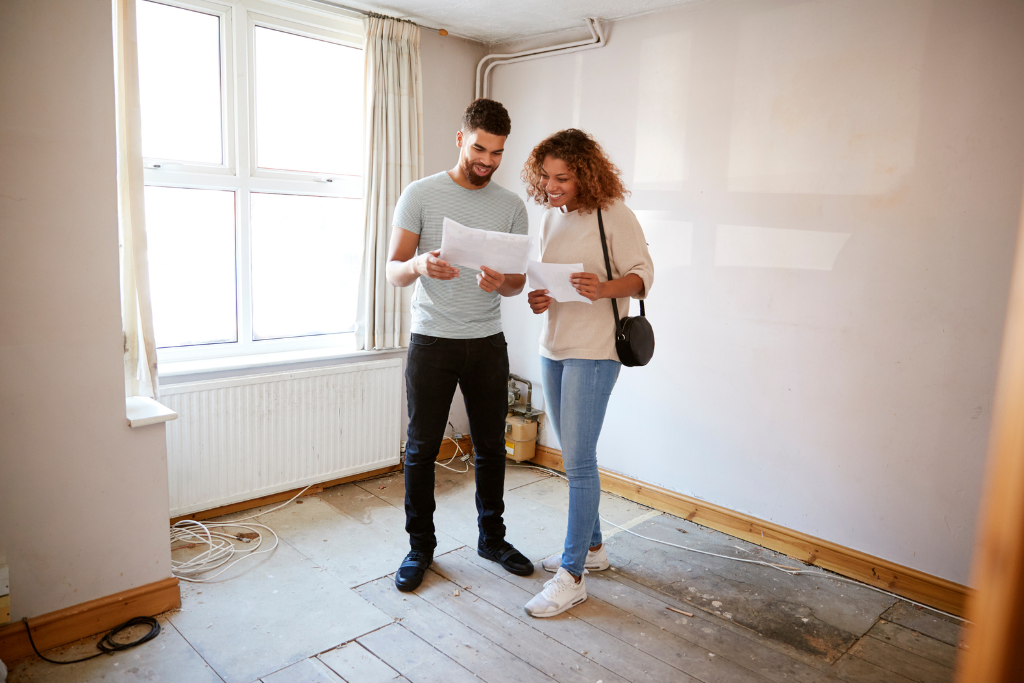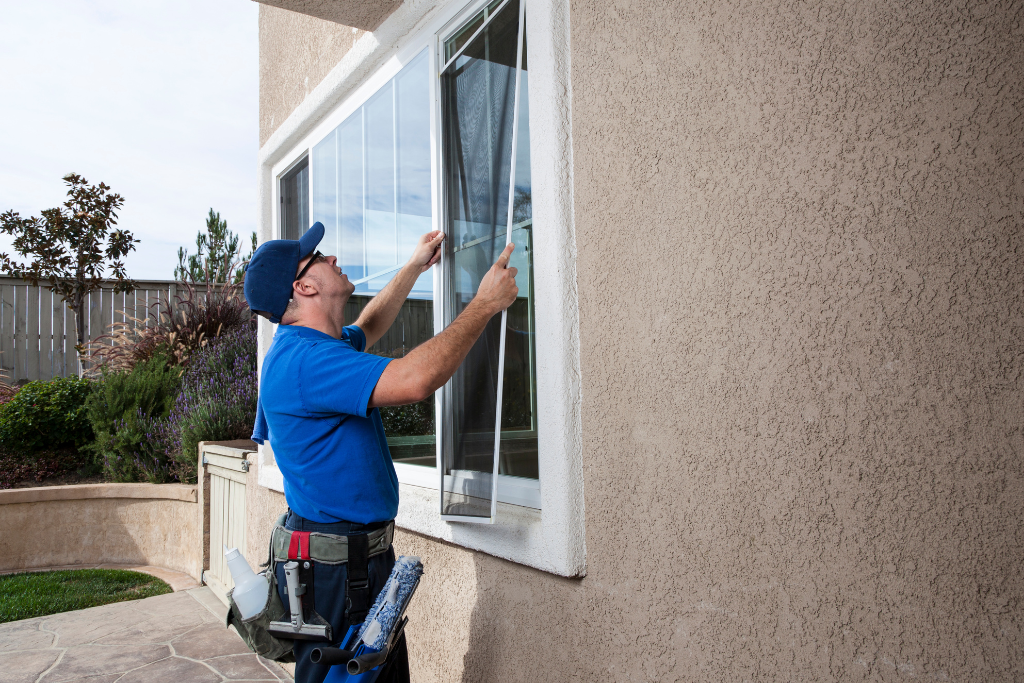
Should you Trust & Sell to UK Property Cash Buyer 2024
Looking at why you may sell your house to a property cash buyer, if you can trust a cash offer, and how we can help you sell…

Alexandra Ventress ★ Digital Content Writer
Table of Contents
When it comes to selling your house, it can be easy to feel overwhelmed. In the golden age of the internet, it seems as though we have no limit when it comes to researching all the various options for selling your home. Estate agents, auctions houses, and property cash buyers, are all options that you are likely to have come across when researching how to sell your house fast.
Property cash buyers aim to purchase your home fast and usually without fees, in a time frame to suit you regardless of condition or location. But should you trust them? And should you sell to a UK Property cash buyer 2024?
In this blog post, we are going to answer these questions and more, looking into the pros and cons of a cash buyer, whether they will give you a better offer, and if you should sell to them.
What is a Property Cash Buyer?
A property cash buyer is a person or company who is able to purchase a property without the need for a loan or mortgage first. In order to be classed as a genuine cash buyer, the buyer must have the cash funds readily available when they make the offer. Sometimes companies will claim to have a cash buyer waiting in the wings to purchase your property, but in reality they are waiting for their sale to go through before they can purchase yours.
Why do people use a cash house buyer?
There are many reasons why someone may use a cash house buyer to purchase their property:
- Divorce
- Inherited property
- Problem property
- Moving abroad
- Repossession
- Housing chain collapse
Pros and Cons of selling through a cash property buyer
As with any selling decision, there are pros and cons to be had with selling your home to property home buyers. Whilst selling to a cash buyer can provide you with a fast and secure sale, not all companies are what they are cracked up to be. Below we take a closer look at the advantages and disadvantages of selling your home for cash:
Pros
The main advantage to selling your home to a fast house sale company is that they are able to buy your home in a quick time scale. If you need to sell quickly, then a cash sale may be the route for you. As there is no need for a loan or mortgage, most cash buyers can purchase your home in a time frame to suit you.
As cash buyers will buy any property, you have assurance that they will purchase your property. They are not typically put off by the condition or the location. They are also undeterred by any issues the property may have, such as fire and smoke damage, subsidence, lease issues and other problems.
As there is no property chain involved in a cash sale, there is less chance of the sale falling through and takes away a lot of the hurdle that you would associate with a typical house sale.
Selling through a sell house fast company is often more secure than an open property market sale. This is because cash buyers will purchase any property and have the cash funds readily available to do so, so the sales are less likely to fall through.
As a genuine cash buyer is able to purchase your home without the need for a loan or mortgage, they do not need to wait for another sale to go through before they can purchase your home. This takes away the property chain aspect that you find with most sales.
Cons:
Part and parcel of dealing with a fast property sale company is that you will have to sell your house below market value. Exactly how much below value your cash offer will be, will depend on a variety of factors, such as the condition of the property, and the company that you sell with. However, many people will look at this as a fair trade-off in return for a fast and free sale.
As we have already mentioned, cash buying companies are unregulated, which means that some companies try to take advantage of customers. In order to ensure that this does not happen to you, you should do your due diligence when selling, looking at reviews from a variety of sources, and checking to see if the company is a part of any redress schemes such as the National Association of Property Buyers or The Property Ombudsman, and shopping around for a variety of quotes.
Should you trust property buyers?
Yes, you can! However, just because you can trust UK property buyers, doesn’t mean that you should trust EVERY property buyer. The business of cash buying property is unregulated, and whilst for most companies this does not prove to be an issue, some use this to their advantage and purposefully trick customers into much lower offers.
If you decide that you wish to sell with a cash buyer, you should always be sure to check that they are part of a redress scheme, such as The Property Ombudsman or the National Association of Property Buyers. Whilst these companies have no regulatory powers, they can help to provide an extra layer of security for buyers.
You should also be careful to check out a variety of reviews for your chosen cash buyer online. Be sure to read the negative as well as the positive. And always remember if something seems too good to be true it often is.
How do I know if a quick house sale company is dishonest?
Thankfully, whilst there can be many unethical house buying companies, there are telltale signs that you can look out for to ensure that you are being taken advantage of:
- Before you sign on with any cash house buyer, ensure that there are no cancellation or withdrawal fees.
- If a cash buyer offers you 100% market value for your property, then it is a scam and they cannot be trusted.
- If something seems too good to be true, it often is.
- You should look into a property buyers companies house. If they are a genuine cash buyer then they should have a high-profit turnover as they should be purchasing with their own cash funds.
- If you are selling through a reputable company, then there will be no fees involved in the process.
- The company you sell through should not ask you to sign an option, a lock-in contract, or an RX1 form.
- You should check to ensure your company is with a redress company of some sort, although if they claim to be with a regulatory board they are lying, as cash house buying is an unregulated company.
- You should also look at reviews left for the company. You should be sure to look at a wide range of reviews and keep an eye out for fake reviews. If a company has nothing but 5-star reviews then you need to ask how they can get it right every single time. Whilst the internet is a great tool, it can also be used to push misinformation, so it’s always wise to read around and not take everything at face value.
What are some tactics that dishonest cash buyers use?
Some cash buying companies are not above pulling unethical tricks in order to take advantage of those looking for a quick sale. Below are some of the tactics that they use:
- Unreliable online reviews
- False advertising and incorrect statements
- Falsely selling option agreements as a cash offer
- Reducing their cash offer at the last minute
What is a buying agent?
A house buying agent is similar to an estate agent except they act with only the buyers interests in mind. The role of a buying agent is to find a property for their client that best suits their requirements. Once the buyer finds a property they like, their buying agent will then negotiate an offer to get the best price for them.
When you are selling a house, you will typically use an estate agent whose sole interest is the seller, so by using a house agent, it can help to balance the scales.
Why do people use house buying agents
There are many reasons why a buyer may decide to employ a house buying agent. Some of the reasons can include:
Off-market
By using a buying agent, you are not only gaining access to their knowledge but also to their contacts. Often buying agents will have access to various off-market properties. These are properties that you will not find in an estate agent’s window or advertised on online property portals such as Rightmove or Zoopla.
Furthermore, if a property is going on the market in the coming weeks, a buying agent who is worth their salt will know this in advance. By having an advanced warning about a property’s entry into the market, you may be able to get an edge over the other buyers.
Time-saving
Buying a house is not always the fastest process in the role, but when you have a buying agent on your side it can help to speed the process up considerably. They will be able to search for properties that meet your specifications, preview the property, and provide you with a shortlist of the properties they think will be most suitable for you.
Negotiation
By using a buying agent, you will be able to make an informed decision on the property’s value. They will be able to provide you with a negotiation strategy and they may be able to secure you a discount on the property.
Do property buying companies give you a better offer than normal buyers
There are many property buying companies on the market, that will offer you varying degrees of market value, however, they will not be able to give you a better offer than a regular buyer on the open market. If you are looking for a fast sale, then you may be willing to sacrifice the lower offer in return for a much quicker sale time to suit you. However, if you can afford the time to wait, then you may be able to get more for your property than a cash house buying company can offer you.
Need help selling my house and not sure if you should use a uk property buyer?
A cash buyer can be a great option for selling, they will typically provide a quick and free way to sell your home. However, you will not receive full market value for your home, and there are many companies that may not be as they originally appeared. Thankfully, if you need help selling your home, there are several other options that you can explore.
Besides cash buyers, you may also wish to explore selling your property through an auction or an estate agency. Each of these selling options have pros and cons, which we will look into in more depth below.
Auction
One such way that you may wish to sell your home is through a property auction. A property auction works by agreeing on a minimum reserve price for your property, and if a buyer meets the reserve price then it sells to them.
The best case scenario that you will want from a property auction is multiple interested buyers outbidding each other for your lot, raising your total profit.
They are a popular selling choice as sales rarely fall through due to the tight rules and regulations surrounding the sale.
However, property auctions do bring their own issues with them. One of the biggest problems is that selling data auction is not always the quickest selling route. They involve waiting for the next auction, then marketing, viewings, and valuations can take another month on top of this, and even after the auction is complete you will still have to wait for the paperwork to go through.
Furthermore, they are often preferred by those who have slightly more unusual [properties to sell. Often those who have problem properties or houses with boundary issues or damage sell at auction, so if you are trying to sell the family home, there are often better routes to take.
On top of this, selling at auction is not without cost. Auctioneers will charge fees to cover the cost of marketing and selling your home, which can once again eat away at your final profit.
Estate agent
Another option you may wish to explore when selling is going through an estate agent. An estate agent is a great selling option as they will undertake all of the heavy lifting involved in a house sale, in return for a commission at the end of the selling process.
An estate agent will undertake the marketing of your property, create listings, host viewings, and negotiate deals for you so that you don’t have to.
A big advantage of selling through an estate agent is that you won’t need to undertake as much of the legwork for your sale, such as advertising your property, creating floor plans, hosting viewings, and negotiation.
The downside is that many estate agencies charge a fee for undertaking the sale of your house, but this is not always the case.
If you are looking to sell your house fast and for free, without going through property cash buyers, then read on…
Can the property selling company help me sell my house?
If you are looking for a way to sell your home for free and without any hidden costs or fees, then you have come to the right place.
We are The Property Selling Company, an online estate agency who wants to change how you sell houses. Say goodbye to the days of expensive solicitor and selling fees; we cover the costs so you don’t have to.
We pride ourselves on our philosophy that selling a house should be three things; fast, effortless, and free. That’s why we offer a tailored service, where our team of property professionals are by your side for every step of the process. We will advertise your property on Rightmove and Zoopla, organise viewings cover legal fees, and negotiate better deals for free.
We are making the challenges of selling your home a thing of the past. Over the years, we have built a seamless process to provide you with an excellent service and sell for free.
So if you are ready to get your home on the market, fill out one of our free no-obligation forms today!







